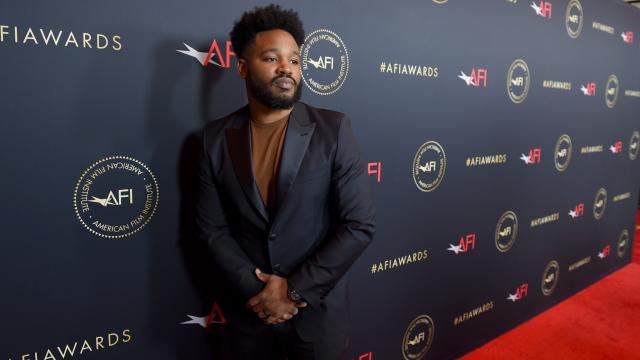Black Panther director Ryan Coogler has penned an article expressing his feelings on shooting the film’s sequel in Georgia, in the wake of the state senate’s decision to vote for restrictions to voting rights with Senate Bill 202.
Writing for Deadline, Coogler’s guest column discusses why he’s choosing not to boycott the state — which has historically been home to many Marvel Studios shoots, among other Hollywood productions, thanks to Georgia’s tax incentives promoting the state as a hub for the film and television industry. “Having now spoken with voting rights activists in the state,” Coogler writes in part, “I have come to understand that many of the people employed by my film, including all the local vendors and businesses we engage, are the very same people who will bear the brunt of SB202.”
Signed into law last month by Georgia Governor Brian Kemp, SB202 allows Georgia’s Republican-controlled General Assembly to make sweeping changes to the way voting currently works in the state, including the extension of voter ID requirements to absentee ballots — which, due to the covid-19 pandemic, played huge roles in both the 2020 presidential election and Georgia’s senate runoffs earlier this year — and a reduction in early voting in future runoffs, among other changes that critics believe disenfranchises voters in historically-democratic areas of the state.
Coogler grew fond of Georgia while shooting the first Black Panther movie, but he does fundamentally oppose what is happening in the state, and acknowledges this bill is aimed at disenfranchising voters of colour, especially Black people. “As an African-American, and as a citizen, I oppose all attempts, explicit and otherwise, to shrink the electorate and reduce access to the ballot,” Coogler noted.
Coogler is using his platform — and Marvel’s platform in the pop culture zeitgeist — to speak truth to power, and plans to leverage it to educate the public about the harmful effects of this bill. “What I will be doing is using my voice to emphasise the effects of SB202, its shameful roots in Jim Crow, and doing all I can to support organisations fighting voter suppression here in the state.” He has also agreed to continuously donate to the Fair Fight Action activist group, which aims to put a stop to the voting rights bill.
For a full explanation of SB 202, read this article at the New York Times is a long but easy read for those looking for clarity.
